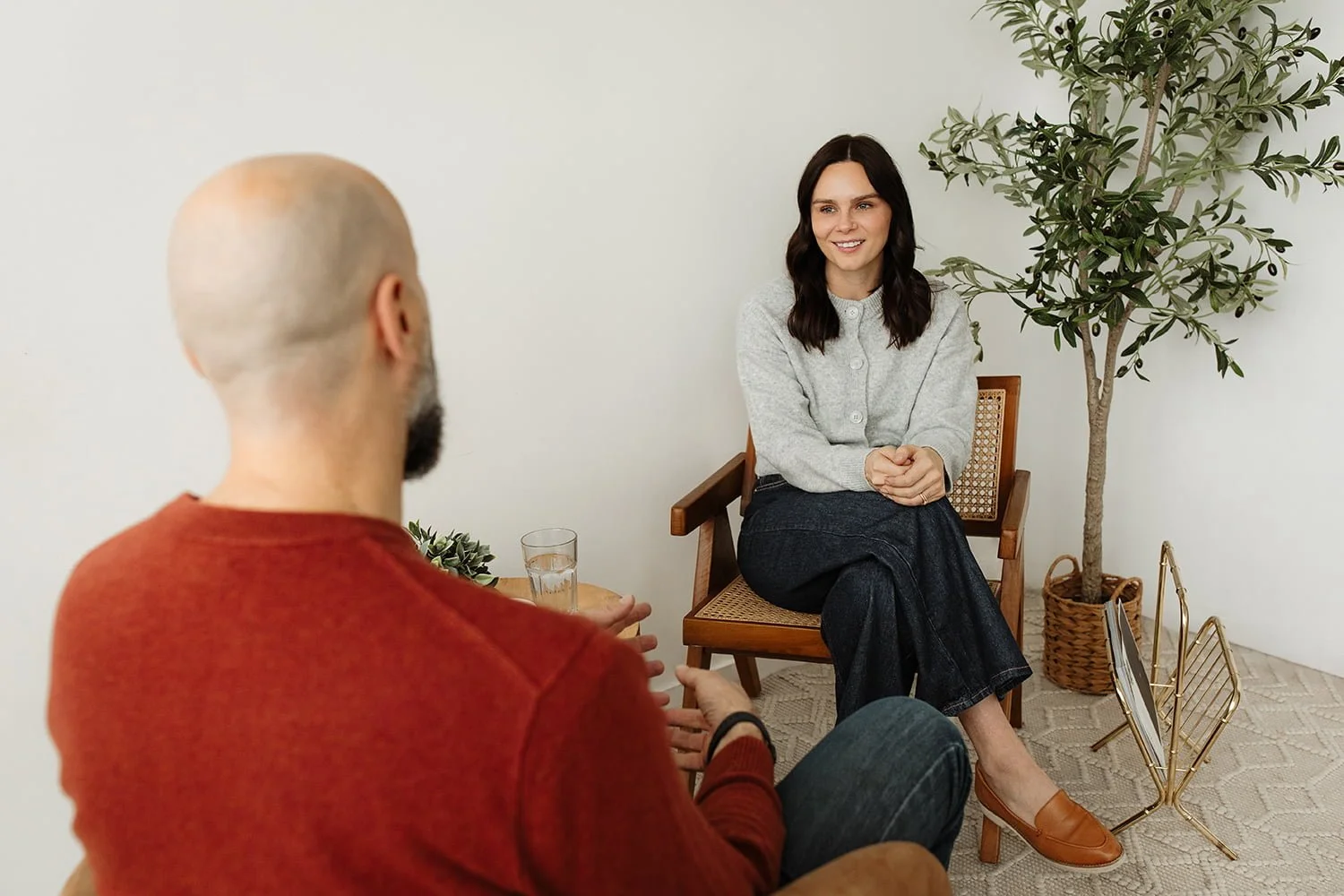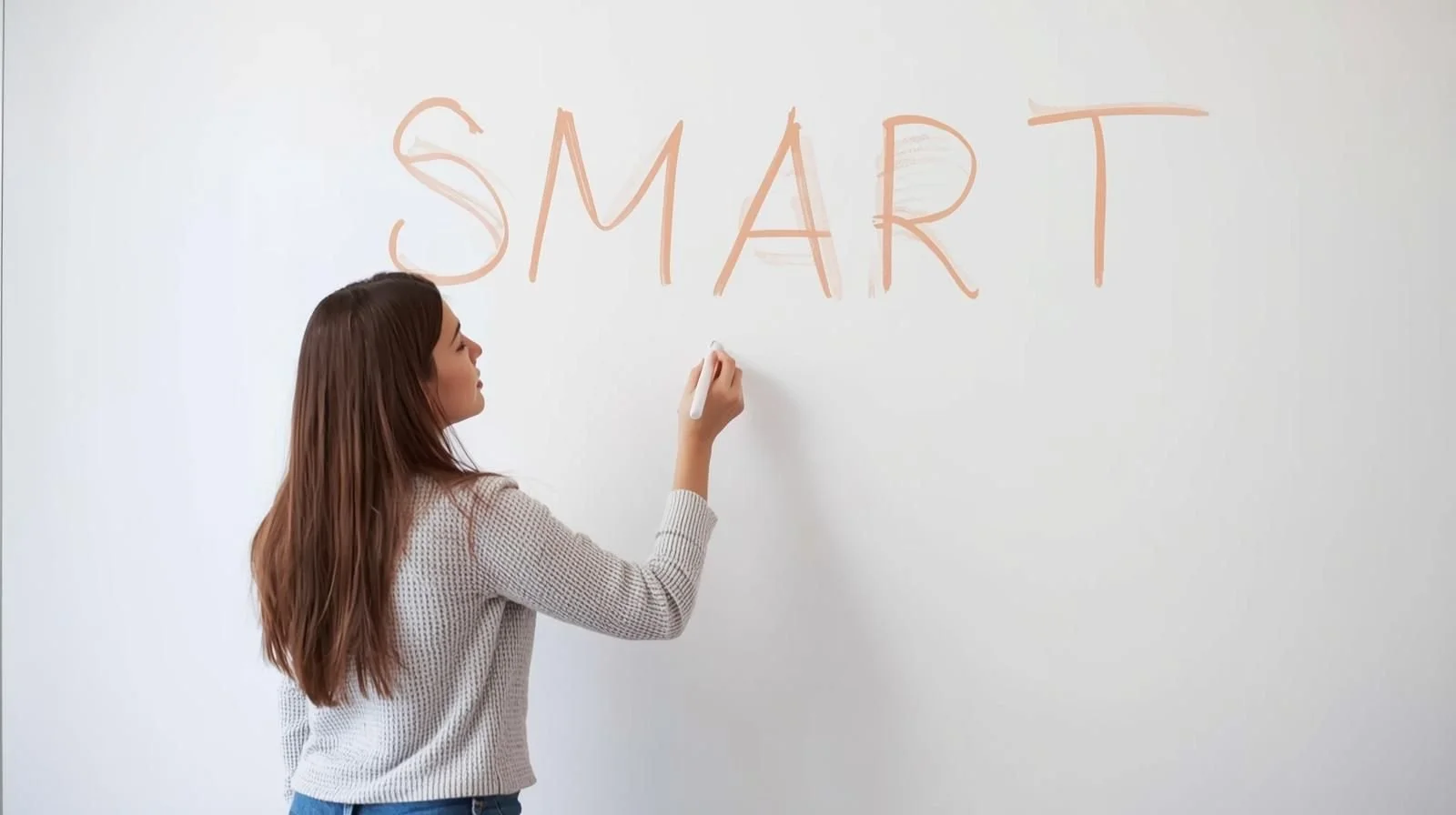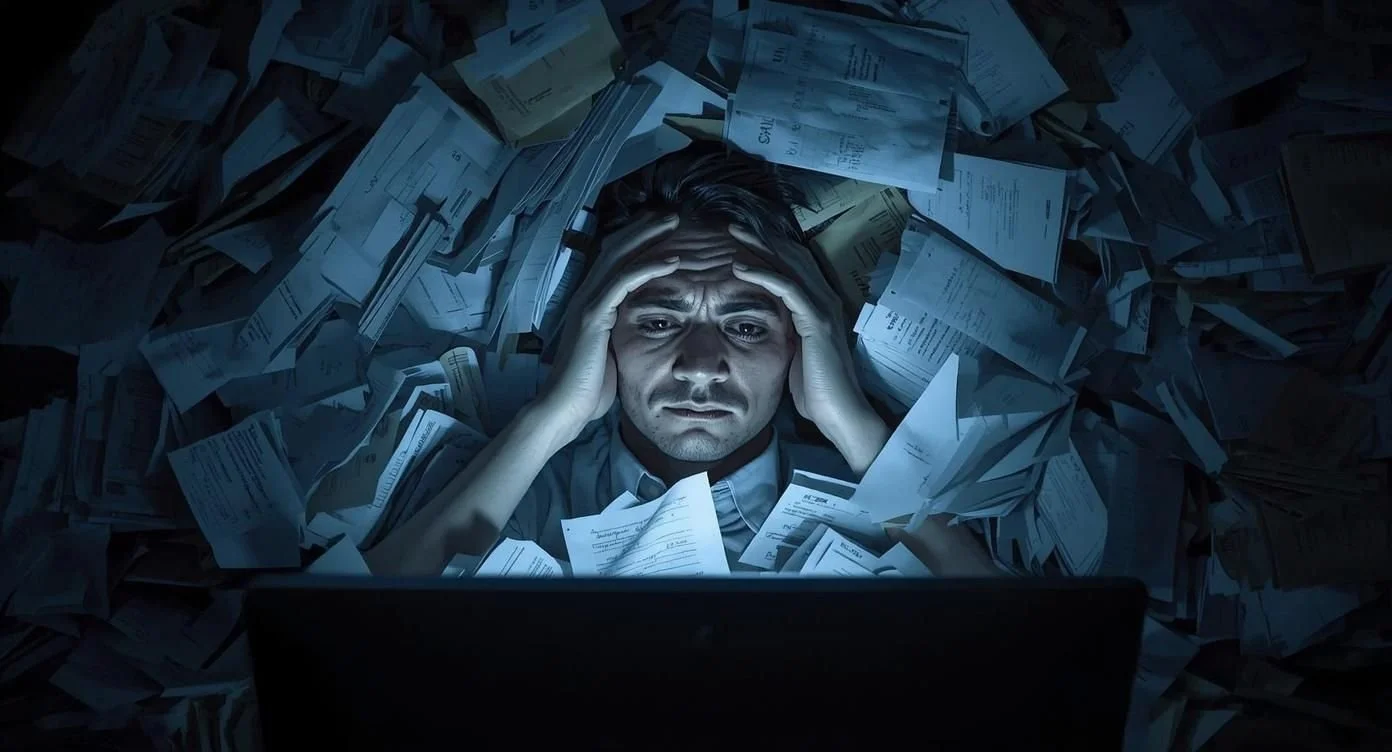
Calgary Addictions Counselling
Are you worried that you or someone you love is struggling with addiction? Our Calgary addiction counselling services will provide the tools you need to take back control of your life.
Reach out today for the support you deserve.

Our Calgary Addiction Treatment Services are Here to Help
Our world is filled with stressors, challenges and hardship. It is all too common to develop a pattern of relying on substances, gambling, sex, pornography or technology as a means of getting by.
What started as a solution, a way to take the edge off, has now become the problem.
Important relationships start to be affected. Your performance at work is declining. You start to feel out of control. You feel isolated and ashamed. You are worried you cannot stop.
If this sounds familiar, you are not alone. We have helped people just like you break this very cycle. We can help you, too. We can assist you to determine the nature of your problem and serve as your guide as you take the necessary steps towards recovery.
Addictions Counselling in Calgary that is tailored to you, your goals and your life
Skills to make change, break patterns and develop new routines
Techniques to manage and overcome cravings
Methods to enhance motivation so that you can accomplish the change you want to make
Solutions now to prevent the need for more intensive treatment or rehab later
Family therapy for you and your loved ones so they can support your recovery
Your Experts in Calgary Addictions Treatment & Counselling
We understand that use of substances and addictive behaviours are highly stigmatized and poorly understood health, issues which all too often go untreated because of shame.
At Prairieview Psychology, we provide a nonjudgmental space to name the problem, build a plan and move forward towards your goals.
We bring over 20 years of experience helping people just like you make positive change. We know addiction and understand that a one size fits all approach does not work.
Our Calgary addictions counselling team draws on our extensive experience of having worked at residential treatment centres and outpatient programs.
We know what works and what doesn’t. Let us use our experience to help you build a healthier, more fulfilling life—one step at a time.
Don’t wait another day – Book a free consultation now
How it Works - Finding the Right Calgary Addictions Counsellor
Prairieview Psychology is focused on providing quality Calgary addiction counselling that is catered to your unique needs. Book a free 15 minute consultation to discuss your goals for therapy.
-

Schedule a Free Consultation
-

Book an Appointment
-

Work on Your Goals
-

Get Results

Our Approach to Calgary Addictions Treatment
At Prairieview Psychology, we know that you do not want to rely on a behaviour or a substance to get through your day. We know that you want to get unstuck, regain control and live a life in keeping with your values.
To move forward, you need clarity about the root of the problem, as well as tools and strategies to make and sustain change. We recognize that YOU are not the problem; but continuing to avoid the issue will keep you stuck and leaves the potential for things to get worse.
We see you – not the addiction. We know that you are capable of overcoming this challenge. You just need the right support, skills and guidance.
This is where we come in. We are recognized leaders in the field of addiction possessing expertise, knowledge and earned experience helping people overcome the very behaviours you're struggling to change.
Taking the first step is easier than you think. Reach out to us for a free consultation, we will match you with the right Calgary addictions counsellor, book your first appointment, and get to work on making meaningful change.
Our Calgary Addictions Counselling Specialists
-

Joel Mader, Psychologist
As a psychologist in Calgary with over 10 years experience working with individuals, couples, and families, Joel has helped many individuals just like you break free from addiction and build a healthier life. He helps clients overcome cravings and triggers by using proven strategies that support lasting recovery.
-

Kelsi Mader, MSW RSW
Kelsi is a therapist with over a decade of experience supporting individuals through addiction, recovery, and relapse prevention. She offers empathetic care to help clients build strategies for handling urges and difficult moments, strengthen coping skills, and rebuild a foundation for a full and healthy life.
-
Addiction is a complex mental condition characterized by persistent engagement in a specific activity or substance use, despite demonstrably negative consequences.
A crucial distinction exists between problematic substance or behavioural patterns and full-blown addiction.
This differentiation is significant because if you have not yet crossed the threshold into addiction you may be able to reduce or modify your substance use or behaviour rather than needing to abstain altogether.
For those people who are addicted, complete cessation (depending of course on the behaviour) usually represents the most effective course of action.
-
Addiction isn't caused by just one thing; instead, it's a complicated mix of factors. Here's a breakdown of some of the main influences:
Genetics: Your genes can play a big part. If addiction runs in your family, there is a greater risk that you too will be prone to these issues, though it's not a definite outcome.
Environment: Your surroundings significantly impact your risk. This includes:
Trauma: Especially childhood trauma, which can seriously increase the chance of developing an addiction as a way to cope with adverse experiences.
Stress: High, ongoing stress can push people toward substances or behaviors for temporary relief.
Social Factors: Being around others who use substances or engage in addictive behaviors, especially when you're young, can make it more likely to try them and potentially develop a problem. Social attitudes can also play a role.
Psychological Factors: Aspects of your mental and emotional state:
Mental Health Conditions: There's a strong link between addiction and mental health issues. People might self-medicate these challenges with addictive behaviours.
Personality Traits: Things like impulsivity or a tendency to take risks can make you more vulnerable.
Coping Skills: If you haven't learned healthy ways to deal with stress, boredom, or emotional pain, you might turn to addictive behaviours as a less effective way to cope.
-
Common addictions fall into two main categories: substance addictions, like alcohol, prescription drugs, or illegal drugs, and behavioural addictions, such as gambling, gaming, sex, or compulsive shopping.
Although there are common experiences across these types of addiction; each one requires its own nuanced approach to treatment.
-
How do you know if you might be struggling with addiction? While it can look a little different for everyone and depend on what the addiction is, there are some common red flags.
Here are some key signs to look out for:
Loss of Control: This is a big one. It means you just can't stop or limit your substance use or behaviour, even when you really want to. You might try to cut back or quit, but you just can't seem to do it.
Preoccupation: The addiction starts taking over your thoughts. You might spend a lot of time thinking about using, planning how to get the substance, or engaging in the behaviour. It progressively becomes a central focus of your life.
Increased Tolerance: For substance addictions, this means you need more and more of the substance to get the same effect you used to.
Tolerance is not limited to substance use. For example, people who struggle with gambling may wager larger and larger amounts to get the same effect. The same thing can happen with shopping, riskier sex and food.
Withdrawal Symptoms: When you stop or reduce using a substance, you can experience uncomfortable physical or psychological symptoms (like nausea, tremors, anxiety, sweating, irritability). You might continue using just to avoid these unpleasant feelings.
Again, withdrawal is not limited to substances and individuals who experience behavioural addictions may experience a psychological withdrawal when they stop the behaviour.
Negative Consequences: Despite clear problems showing up in your life – maybe at work or school, with family and friends, financially, or with your health – you keep engaging with your addiction.
Neglecting Responsibilities: The focus is on sustaining or managing the addiction, and as a result, you start to neglect important duties at home, work, or school.
-
Addiction counselling is a safe, judgment free space where you can learn the nature of your problem and how to break the pattern by acquiring tools that work.
In working with one of our Calgary addictions therapists, you will gain skills to overcome urges.
We will help you to identify issues which may drive your impulses to use substances or engage in addictive behaviours and you will learn how to avoid slipping back or relapsing.
We work together with you to develop an individualized treatment plan so that you can a better, more satisfying life in recovery.
-
Yes, the approach of our Calgary addiction therapists is founded on the principals of effective treatment; principals which have been shown to help people make positive change and establish recovery.
Getting help from our qualified addiction therapists or substance abuse counsellors means you can get treatment that's right for you.
We will work alongside of you to determine what you need and direct you to other services if necessary.
-
It really depends on a bunch of factors such as to the severity of the problem, if the person is experiencing other mental health issues, how committed the person is to making change or how much resources they have to support their recovery.
Some might realize significant changes quickly, while others need longer term counselling and support; in more severe instances a stay in a residential treatment center may be needed.
Among the many benefits of working with one of our Calgary addiction therapists or a substance abuse counsellors is that we can help assess your progress as you work to make change. We will provide you with appropriate recommendations and support along the way.
-
In a typical addiction counselling session, your Calgary addictions counsellor or substance abuse counsellor will work with you to tackle your substance use or addictive behaviours.
Sessions typically cover figuring out what's going on (assessment), setting goals, trying out different therapy approaches or techniques, and planning how to keep you progressing towards a life that isn’t defined by the abuse of substances or behavioural addictions.
-
Once addiction counselling wraps up, people move into the next stage of their recovery.
This usually means continuing to get support from your Calgary addictions counsellor or substance abuse counsellor, family and friends, putting those relapse prevention strategies they learned into practice, and in some cases, becoming part of a recovery community (like SMART Recovery or narcotics anonymous).
It is important to note that we have an open door approach to counselling, meaning that you are always welcome to rebook with our therapists and reconnect for check ins and touch ups as you work to sustain positive changes.
-
When you're trying to help someone struggling with addiction, there are a few really important ways loved ones can assist. First off, encouraging treatment is huge – this means gently but firmly suggesting they get professional help, maybe even looking into options with them. Then, offering genuine empathy and understanding; it's about listening without judgment and trying to see things from their perspective, even when it's tough.
That being said, support also needs to come with healthy limits. Setting clear boundaries protects both you and the person struggling. This might mean deciding not to lend money for substances, or refusing to cover for them or bail them out of tough situations. Finally, getting involved in family therapy can be incredibly beneficial, as it helps everyone in the family unit understand addiction better and learn healthier ways to communicate. And don't forget support groups like Al-Anon or Nar-Anon – these are fantastic resources specifically for family members and friends of those living with addiction, providing a safe space to share experiences and get vital assistance from others who understand.
FAQ on Calgary Addictions Counselling

Sign up to Receive Mental Health Tips & Tricks at your Fingertips
From the Calgary Addictions Counselling Blog
Struggling with addiction?
Reach out to Prairieview Psychology today. We offer free 15 minute consultations to discuss your goals for therapy to determine if we have the right background to assist you. Fill out the contact form, send us an email or give us a call to schedule a consultation today.








